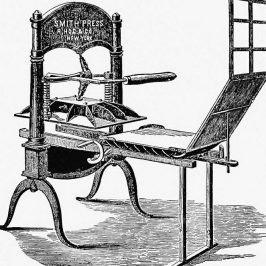
2018 marks the centenary of the end of WWI. This is not news, the media will be awash with references, but for me it is personal. War carries a legacy…
Firstly, let me say a word about my maternal grandfather. I never met him and don’t even know his name, only his surname, Keogh. I have a vague recollection of my maternal grandmother, known as ‘Nanny Keogh’, but I was very young when she died. Much later in life, in fact not long before my father died in 2010, I discovered that Nanny Keogh had been a drinker and on at least one occasion had tried to take her own life.
Why?
Well the family story was that Nanny Keogh’s husband, my own mother’s father, was buried alive in the trenches during WWI. He survived, but he was never the same. So the story goes, he would go walkabout. At first this was just for a few days, then weeks, then months until the time came when he didn’t come home at all.
My mother was a very damaged woman, because of this and because she was the one who discovered her mother’s suicide attempt. As a child I didn’t understand but looking back I can see the impact all this will have had on her.
Moving forward, my own father was in North Africa during WWII and I grew up with that legacy and his stories – a much more benign experience and you can read about that in The Road to Madaba; You might also like to try Once More on the Road to Cairo.
What all these experiences, these family tales, revealed to me was that the shadow of war is a long one. When I set out to write Misfits & Strangers, I began with the impact The Great War had on Kitty Ash and her family. Her father, Jimmy Ash, came home changed and that coloured Kitty’s childhood and her adult relationships.
I am now editing and working up a new draft of Misfits & Strangers and yesterday had cause to reread the opening. It seemed appropriate to share this extract today, in the run up to that centenary. I hope you don’t think I’m jumping on any bandwagon – as I said, this is personal for me and this novel has taken a long time to write, juggling all those personal elements before putting them to one side, leaving me free to tell Kitty’s story, and Harry’s, and Estelle’s…
Misfits & Strangers
by
Teresa Benison
It was god who sent Jimmy Ash to war. Or rather his mouthpiece, the Reverend Sidney Bartholomew of St. Agnes in the Field.
Not that St. Agnes was in a field these days, the constantly expanding city of London having all but swamped what had once been a rural hamlet.
To the rear of the old church, just over the graveyard wall, is the stable where the cabbies keep their horses; a public house sits opposite and next to that a row of shops with brooms and buckets and sacks of potatoes all spilling out over the pavement. Further along is a butcher’s shop with rows of chickens, plucked and pimpled, hanging head down from a rail; trays of chops, sausages and offal sprawl on a marble slab in the window.
Next to this is the watchmaker’s, where Jimmy Ash is apprenticed.
Make no mistake, this is not the London of the rich. The houses on the street where Jimmy lives have no driveways or servants’ quarters, but neither is it the poorest part of the city; each terraced house has a tiny front garden (just two paces deep) with neat walls and net curtains; many, though not all, are occupied by a single family.
I digress.
I was telling you about the Reverend Bartholomew, was I not? Well according to this esteemed gentleman, there exist two kinds of men in the world.
‘There are the heroes,’ His voice rose on a note of passion as he declaimed to his congregation, ‘And then…’ He dropped an octave and gripped the rim of his pulpit. ‘…and then there are the cowards.’
By the Reverend’s reckoning, Jimmy’s brother was a coward.
The thing is, Teddy Ash had a wife and baby daughter. Going to war would mean leaving Nancy and baby Rosa-Jane to fend for themselves, and that just wasn’t going to happen – which is why Teddy and his family took a train from London to Edinburgh, and what happened to them north of the border, is another story.
Because this is Jimmy’s story.
Or rather it’s Kitty’s story, and Harry’s.
I’ll tell you more about Harry down the line but for now all you need to know is that Kitty is Jimmy’s daughter. She wasn’t born till a while after the war, but Kitty is who she is because of Jimmy, and Jimmy was who he was because of the war.
And because of the Reverend Bartholomew.
And Teddy.
The young man you’re meeting now, Kitty will never know.
Because of the war.
Jimmy’s mates had any number of reasons for signing up. Wielding a gun to impress the girls; waving a union flag to jingo a pay rise from the boss; a bit of training and three square-meals a day were bound to stand a lad in good stead after the war. The trick was to get in quick, before it ended.
Over by Christmas.
As if.
Jimmy couldn’t imagine ever killing anyone. He was a quiet lad, thoughtful, liked nothing better than sitting in the workshop alongside Stan, learning all the old man had to offer about mending watches and clocks. Stan had neither wife nor son nor daughter and he said if Jimmy worked hard, he’d leave the shop to him when the Master Clockmaker came calling.
It was because of Stan’s promise that Jimmy dared ask for Dora’s hand. They were married in the April of 1914.
The summer war was declared; and Teddy left; Dora miscarried.
The year turned, and the war did not end. They were calling for volunteers now. Jimmy walked past the posters with his eyes averted. What use would he be on a battlefield? He was a mender of watches and clocks. He had no skills to save the day. All he wanted in life was to look after Dora and raise their sons and daughters.
The doctor said Dora’s miscarriage was ‘unfortunate’ and he squeezed Jimmy’s shoulder and said, ‘Plenty of time to make more little Ashes.’
In January of the following year, the Hun sent their zeppelins to raid the east coast. The paperboys shouted the headlines from every corner.
Yarmouth, a name Jimmy knew but a place he’d never visited (having never been out of London), had been hit; so too was somewhere he hadn’t heard of, King’s Lynn.
Then, in May, the Zeppelins came to London.
Jimmy was tying his pyjama cord when he heard a strange humming, buzzing sound.
‘What’s that, Jimmy?’ Dora sat up straight, clutching her pillow, eyes wide. ‘Can you hear it?’
‘It’s a zep.’ He tightened the knot on his cord and pulled back the thin curtain. He could see the Zeppelin clearly, it was low enough to make out the shapes of the soldiers in the gondola slung beneath its swollen belly. ‘Like some toff’s bloody great cigar -’ he said.
‘Language, Jimmy.’
There was a flurry of movement on the underside of the Zeppelin, then the bombs began to fall.
The house shook. Dora screamed.
‘It’s all right, love. They’re a way over beyond Clissold Park…’
He and Dora were safe, but others died that night.
Heroes and cowards, isn’t that what the Reverend Bartholomew said? Jimmy shivered. So far as he was concerned, Teddy was a hero for taking his family to safety.
But that wasn’t how everybody else saw it.
‘Bloody cowards, packing their bags and scurrying away like rats down a sewer. Should be out there, fighting for fucking king and country…’
It wasn’t the words but the feather that undid Jimmy Ash.
A white feather handed to him by a smiling little girl in a blue pinafore…
That very afternoon, Jimmy made his way to the recruiting office and signed away his life. Three years, the paper said, three years or the duration of the war, whichever is the longer.
Dora threw a saucepan at his head when he told her, then stomped out of the house and went to stay with her mother. She came back two days later and they had a week together before Jimmy left.
The watchmaker packed his knapsack and went to train as a soldier, and when he was done, he was shipped to France.
What is there to say about that war that has not been said before?
Jimmy Ash learnt to clean and load a rifle, to fix a bayonet and aim it at an enemy’s guts. An enemy who was just a boy, like him; but it didn’t do to think that way. Jimmy Ash learnt to close his mind and shutter up his feelings.
Jimmy Ash sat in a trench, up to his ankles in mud that wasn’t just mud but a vile soup of wet earth and decomposing corpses.
Jimmy Ash went over the top and saw his fellows die, their bodies splintered by burning shells, the unlucky ones moaning and clutching at the legs of the living as they pushed relentlessly onwards to their goal with no other thought than to fight and kill the Hun – and to survive.
Jimmy did what he had to do, and he survived. When the war ended, he made it home to the little house on Liddleton Road, to Dora and to his clocks and watches.
‘A miracle,’ Dora said as she clutched his arm and wept for all the boys, the husbands and sons and brothers who had not come home.
Jimmy let Dora hold him. Maybe it was a miracle, but he couldn’t feel it.
Nor did he feel much when she told him that Albert had died in ’17, only a faint sense of relief to hear that the old man had kept his word, and that Jimmy had a business ready and waiting…
… a business, a wife, and something of a life.






2hackers
3artificial